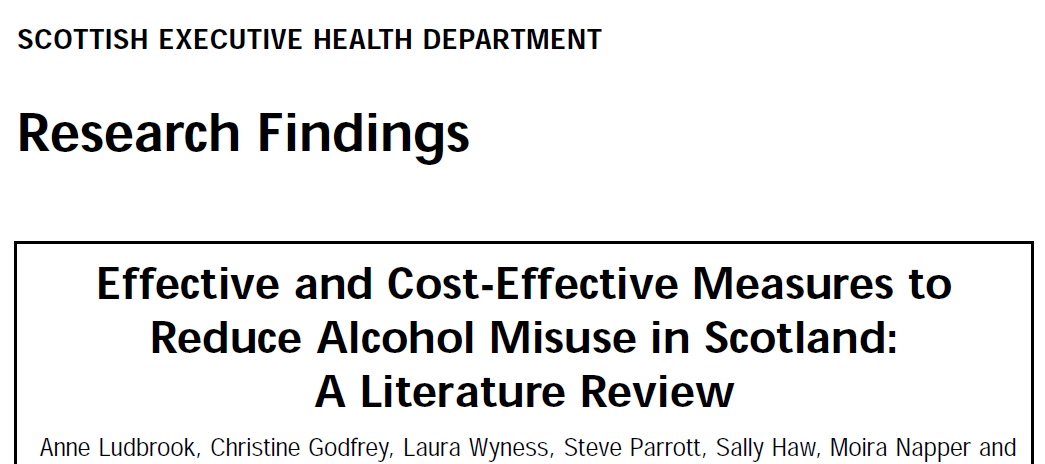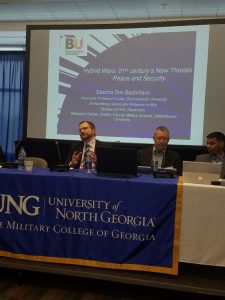HE Policy Update
w/e 10 November 2017
A research funding crisis?
Follow this link to read the A research funding crisis? summary with all the diagrams and charts.
Or read the summary below without the charts.
Ahead of the Autumn 2017 Budget the Higher Education Policy Institute (HEPI) has published How much is too much? Cross-subsidies from teaching to research in British Universities written by Russell Group PG Economics student Vicky Olive. The paper concludes that research within universities is reliant on subsidy by tuition fee funding. As international students pay higher fees more of their fees go towards research than home and EU students. The paper concludes that on average international students contribute £8,000 from their total fees towards research. While the figures vary between universities, in 2014/15 teaching income funded 14% of English university research (approx. £1 in every £7 spent).
The paper argues that although the UK has a leading global research performance (see diagram below) R&D expenditure is well below competitor nations and unsustainable in the long term.
The paper argues that In 2014/15 the UK HE sector had a sustainability gap of £1 billion. This is described as a looming crisis because of a number of factors:
- the focus on value for money for students paying tuition fees
- Brexit threats to EU research funding
- the unwelcoming nature of current immigration policy
- the improvement of HE education in countries where the UK traditionally recruits international students
- the impact of UK austerity policy which has seen limited science and research budget growth.
The Conservative Government’s has a target to increase R&D spend to 3% of GDP. The paper suggests that to realise this target the following would need to occur:
- the UK would need an additional 250,000 full fee-paying international students;
- Research Councils and Funding Councils to spend an additional £3 billion on funding research;
- industry to contribute an additional £700 million;
- charities to contribute an additional £830 million;
- government departments to contribute £760 million extra each year.
Current R&D expenditure is 1.7% of GDP (25% of which spend by HEIs, 66% of spend by industry). The Government has announced additional investment of £4.7 billion by 2020/21 for R&D, however, the paper argues this isn’t enough and that other sectors must also increase their investment. The paper summarises recent Government policy related to R&D budgets.
The paper considers, and discards, the notion of only providing QR funding for 4* research.
In addition to her calls to increase research investment the author states her aim is to bring together UKRI and OfS to facilitate a sensible research funding model which neither underfunds or jeopardises research sustainability nor exploits students. The paper also urges universities to push back and recover a greater proportion of full economic cost from industry funders, particularly when the research is not directly for the public good.
Nick Hillman, Director of HEPI, commented : ”Anyone who wants to end cross-subsidies must say how they would fund universities’ various roles properly. There are three pressing issues. First, those who fund university research – public and private funders as well as charities – do not cover anything like the full costs. Secondly, the cross-subsidy from tuition fees to research is probably not sustainable at current levels. Thirdly, the Government wants a near doubling in research and development spending as a share of GDP, yet recent funding injections are only enough to stand still.
Our conclusion is that the Chancellor needs to find another £1 billion for research in this year’s Budget, with some set aside for the work universities do with charities. But even this level of additional funding would mean stagnation relative to other countries. So we also need a strategy for increasing research spending to OECD levels over the next few years and German levels thereafter – as promised in the 2017 Conservative manifesto.
The Times covered the report in University research subsidised with £281m from tuition fees.
Separately but relevant to this debate:
- THE have written about the latest OECD data stating it shows a levelling off in global numbers of mobile students after the exponential growth of late 1990s and 2000s – read Data bite: international student flows in focus.
- As we near the Autumn 2017 Budget parliamentarians have been calling on the Government to support their campaigning interests. This week Vince Cable (Lib Dem Leader) covers education and research and development in his pre-budget speech: “Long term studies by the LSE have shown that the two main determinants of poor UK performance on productivity are lack of innovation (R&D as opposed to basic science where the UK is strong) and low levels of skills. The former problem is being addressed by R&D tax credits and by the work of Innovate UK, in particular the Catapult network, which Liberal Democrats launched in government as part of the Industrial Strategy.
- The latter is a far less tractable problem and despite the progress we made in the Coalition in raising the number and quality of apprenticeships, especially Higher Apprenticeships, the programme is now slipping backwards largely because of clumsy implementation of the apprenticeship levy and the neglect of careers advice and guidance….a budget built around the industrial strategy, prioritising education and skills, R&D and infrastructure would, at the very least, send the right signals.”
Interdisciplinary Research
HEFCE have opened sub-panel nominations for roles related to IDR within REF 2021 aiming to support and promote the fair and equitable assessment of IDR outputs and environment through:
- the inclusion of Interdisciplinary Research advisers on each sub-panel
- the continuation of the optional IDR flag
- the inclusion of a specific IDR section in the environment template
In September HEFCE blogged on the importance of academics within interdisciplinary research culture in What creates a culture of interdisciplinary research? HEFCE described what the new IDR role may look like in Wednesday’s blog REF 2021: Where are we on interdisciplinary research?
Widening Participation and inclusivity
OFFA has commissioned a new evidence based research study: Understanding and overcoming the challenges of targeting students from under-represented and disadvantaged ethnic backgrounds.
HEA and Runnymede Trust will analyse existing practice across the sector and ‘produce a suite of practical guidance to support staff in a variety of different roles within universities and colleges in overcoming the challenges associated with this work’. The project is part of OFFA’s long-term aim to challenge and support universities and colleges to do more to address the differences in higher education participation, attainment and progression to further study or employment that persist between students from different ethnic groups.
Les Ebdon: “Black and minority ethnic (BME) students have been a key target group for OFFA for a number of years. But our research suggests that universities and colleges are struggling to target the activities they deliver through their access agreements where they are most needed…This project will help us understand how activities can be targeted appropriately and effectively towards students from disadvantaged and under-represented ethnic backgrounds, enabling OFFA to better support universities and colleges to accelerate progress in this crucial area.”
Principal Investigator, Jacqueline Stevenson, stated: “Our intention is not just to indicate the barriers institutions are facing, but also what they are able to do to address these entrenched and long-standing inequalities.”
Scope call for inclusive workplaces: Scope has called on the Dept for Work and Pensions to develop universal, industry-standard information and best practice guidance for all businesses to support their employment and management of disabled people. Scope’s new research Let’s Talk found many disabled people struggle to share information about their impairment or condition in the workplace making it hard for them to access the support and adjustments they need to carry out their job.
Question to the Dept for Education: Office for Students
Andrew Percy (Con): Whether the remit of the Office for Students will include anti-discrimination on campus.
Jo Johnson (Con, Minister of State for Universities, Science, Research & Innovation): The government has published a consultation on behalf of the new Office for Students (OfS) regarding the regulation of the higher education sector. It proposes that, in its regulatory approach, the OfS will look to ensure that all students, from all backgrounds can access, succeed in, and progress from higher education.
Higher Education (HE) providers are autonomous organisations, independent from Government, and they already have responsibilities to ensure that they provide a safe, inclusive environment, including legal obligations under the Equality Act 2010 (the Act) to ensure that students do not face discrimination.
The OfS, like some HE providers, will also have obligations under the Public Sector Equality Duty in part 11 of the Act. This includes a requirement that the OfS, when exercising its functions, has due regard to the need to: eliminate unlawful discrimination, harassment and victimisation and any other unlawful conduct in the Act, advance equality of opportunity, and foster good relations in relation to protected characteristics.
In addition, in September 2015 the government asked Universities UK (UUK) to set up a Harassment Taskforce, composed of university leaders, student representatives and academic experts, to consider what more can be done to address harassment and hate crime on campus. The taskforce published its report, ‘Changing the Culture’, in October 2016, which sets out that universities should embed a zero-tolerance approach to sexual harassment and hate crime. This includes hate crime or harassment on the basis of religion or belief, such as antisemitism and Islamophobia. The Higher Education Funding Council for England is currently working with UUK to test the sector’s response to the Taskforce’s recommendations and the results of this will be published early in 2018.
House of Lord Questions – Disabled Student Allowance
Lord Addington (Lib Dem) has asked three parliamentary questions regarding the disabled students allowance.
Q1: Whether the evaluation of Disabled Students’ Allowances will include consideration of the need for third party advisers to have clarity of information about the respective responsibilities of higher education providers and claimants of those allowances.
Q2: Whether the evaluation of Disabled Students’ Allowances will include consideration of the benefits of issuing a guide to higher education providers about their responsibilities in relation to students claiming those allowances who fall into bands 1 and 2.
Q3: Whether the evaluation of Disabled Students’ Allowances will include consideration of the levels of information provided by higher education providers to students claiming those allowances about the respective responsibilities of those institutions and students.
The Earl of Courtown provided the same (non-)response to all three questions:
A: The evaluation of Disabled Students’ Allowances (DSA) will address a range of factors relating to the efficacy of support for disabled students, including the effect of recent changes to DSA policy.
Parliamentary Questions
Question to the Home Office – Visas: Overseas Students
Q -Jo Stevens (Labour): How much was accrued to the public purse from charging international students applying for Tier 4 student visas in each year since 2010.
A – Brandon Lewis (Con, Minister of State for Immigration): Visa income is not differentiated between the various categories in which they are received. Visa volumes by broad category (study, work etc) are published in the data section of this webpage: LINK Fees and unit costs are also published, for example, for 2017/18: LINK
Private Providers
Lord Storey (Lib Dem) has tabled two questions about the quality of private providers:
Q1 – On how many occasions in the last three years the Quality Assurance Agency for Higher Education has (1) raised concerns, and (2) taken action, regarding private colleges and providers of degrees
Q2 – What measures they are taking to provide quality assurance for students studying degree courses at a private college whose degrees are validated by a university
These are due for answer on Tuesday 21 November.
Consultations
Click here to view the updated consultation tracker. Email us on policy@bournemouth.ac.uk if you’d like to contribute to any of the current consultations.
New consultations and inquiries this week:
- Two Dept for Health consultations on nursing, and one on regulation and workforce development of the health services
- Jo Johnson has announced the sector will be asked for their opinion on two year degrees in a forthcoming consultation
Other news
Student Engagement: Guild HE have written for Wonkhe censuring the limited nature of student consultation and engagement proposed through the new Quality Code and critiquing both the TEF and the Office for Students in Engaging students as partners: two steps forward, one step back.
HE Policy Briefings
Awareness of policy is integral to many roles at BU and with HE constantly in the news it can be hard to sort the wood from the trees to keep current. We’re running two short and sharp HE Policy Briefings during November and December; all are welcome so come along to learn more!
The briefings will:
- present the latest policy developments for universities and how they may affect BU, our staff and students
- cover the next steps for the Teaching Excellence Framework, including subject level TEF, and how this could impact BU
- support you to consider actions you could take to prepare for change and challenges arising from these development.
Email organisational development to attend on: Wed 22 November 12-13:00 at Lansdowne or Thurs 7 December 12-13:00 at Talbot (mince pies included!)
Subscribe!
To subscribe to the weekly policy update simply email policy@bournemouth.ac.uk
JANE FORSTER | SARAH CARTER
Policy Advisor Policy & Public Affairs Officer
65111 65070
Follow: @PolicyBU on Twitter | policy@bournemouth.ac.uk



























 From Sustainable Research to Sustainable Research Lives: Reflections from the SPROUT Network Event
From Sustainable Research to Sustainable Research Lives: Reflections from the SPROUT Network Event REF Code of Practice consultation is open!
REF Code of Practice consultation is open! BU Leads AI-Driven Work Package in EU Horizon SUSHEAS Project
BU Leads AI-Driven Work Package in EU Horizon SUSHEAS Project ECR Funding Open Call: Research Culture & Community Grant – Apply now
ECR Funding Open Call: Research Culture & Community Grant – Apply now ECR Funding Open Call: Research Culture & Community Grant – Application Deadline Friday 12 December
ECR Funding Open Call: Research Culture & Community Grant – Application Deadline Friday 12 December MSCA Postdoctoral Fellowships 2025 Call
MSCA Postdoctoral Fellowships 2025 Call ERC Advanced Grant 2025 Webinar
ERC Advanced Grant 2025 Webinar Update on UKRO services
Update on UKRO services European research project exploring use of ‘virtual twins’ to better manage metabolic associated fatty liver disease
European research project exploring use of ‘virtual twins’ to better manage metabolic associated fatty liver disease